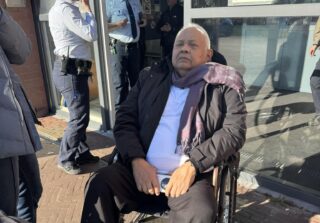MANILA, Philippines–Inflation may breach the top end of the central bank target this month to reach its highest point since April 2009 on the back of higher food prices.
This bolstered expectations that the Bangko Sentral ng Pilipinas would hike its policy rates for the second consecutive rate-setting meeting next month as it tries to temper demand to offset supply-side pressures on consumer prices.
“Most likely, we will see another interest rate hike,” BDO chief market strategist Jonathan Ravelas said in an interview.
In a statement on Thursday, BSP Governor Amando M. Tetangco Jr. said inflation may settle between 4.7 and 5.5 percent in August from 4.9 percent of July.
If the top end of the projected range is reached, consumer prices will have hit its highest point since April 2009’s 5.6 percent.
Ravelas said the forecast from the BSP was surprising. BDO, the country’s largest bank, said it thought inflation may have peaked in July and would continue to decelerate toward the end of the year.
“If I were trying to read them, I’d say they think inflation would continue to rise in September and October,” Ravelas said.
He said the BSP may opt to hike interest rates by 25 basis points next month, coupled with a 25-basis-point increase in special deposit account (SDA) yields.
At its last four policy meetings, the BSP moved to tighten monetary settings to ensure consumer price movements are tempered. Banks were ordered to increase clients’ deposits set aside as reserves. SDA and interest rates were also hiked.
Tetangco said overall consumer prices may have risen faster due to increases in food and utility costs, as well as weather-related tightness in supply of key commodities. Lower fuel prices may partly offset cost increases.
“The BSP stands ready to implement necessary policy actions to ensure that inflation expectations remain well-anchored and limit any potential buildup of second round effects of current price pressures,” Tetangco said.
Monetary authorities’ main role is to protect the peso’s purchasing power by keeping prices stable. This is done by influencing the amount of money circulating in the economy and the rates offered by banks for loans to the public. Higher inflation forces the BSP to be more restrictive to temper demand.



